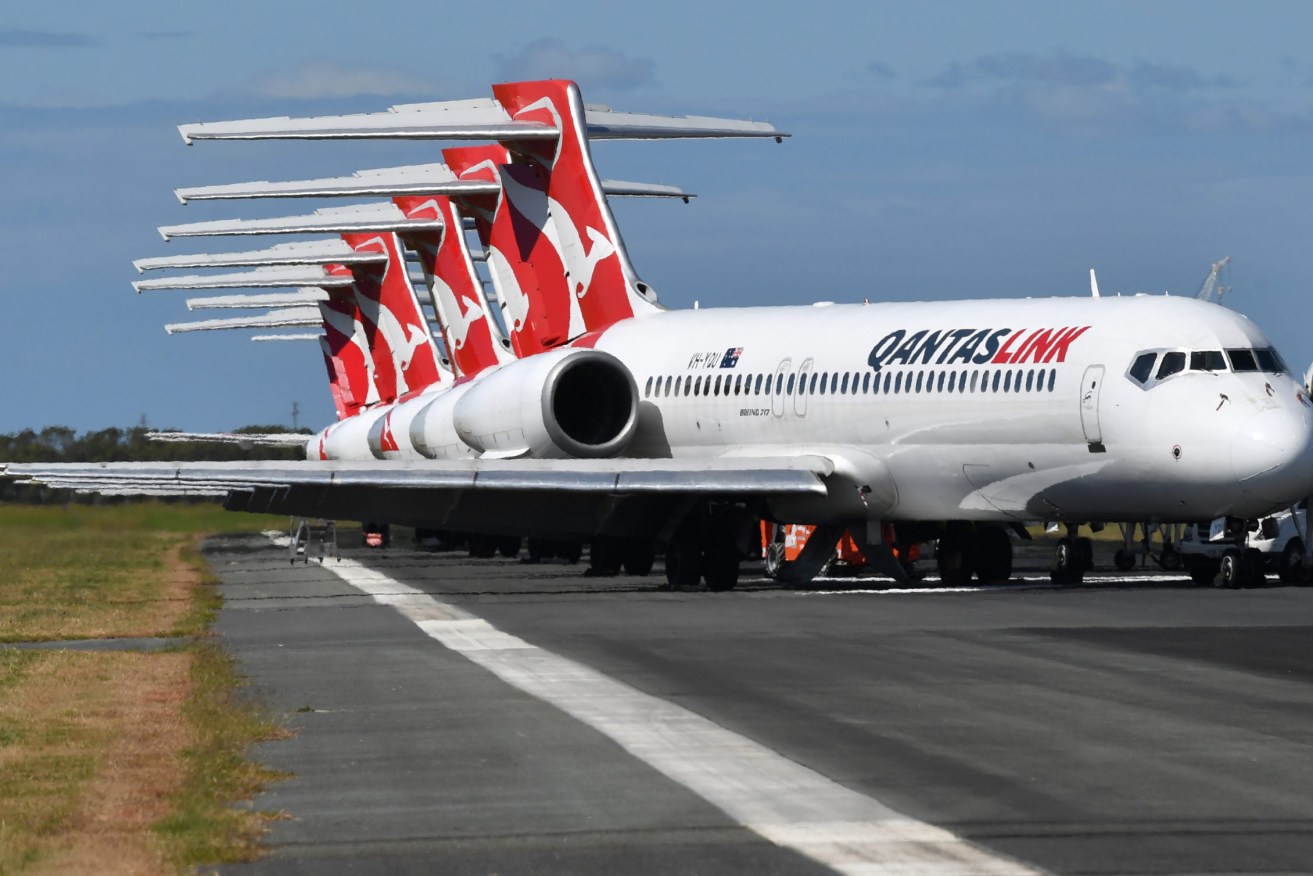Qantas job losses reach 8500 as it dumps ground staff to save $100m
Qantas has told 2000 employees that their jobs were gone and it would move to outsource ground handling operations at 10 airports across Australia as it works to recover from the COVID crisis.


Grounding a huge part of our airline fleets has helped slash emissions. (Photo: AAP Image/Darren England)
The company has now shed 8500 jobs since the pandemic hit, almost a third of its entire workforce. It has also taken on more than $1.5 billion in debt and is forecasting a revenue loss this financial year of more than $10 billion. It reported a $2.7 billion loss in 2020.
The company said it had rejected bids from the TWU and some local airport teams, but its successful bidders would provide savings of $103 million, slightly more than the $100 million it had wanted.
Workers were initially told of the job shedding plans in August and TWU has accused the airline for using the pandemic as cover for a strategy it had been trying to achieve for a decade.
The Transport Workers’ Union submitted a bid on behalf of employees in accordance with terms in the enterprise agreement. Teams from some individual airports also submitted local proposals.
“Unfortunately, none of these bids met the objectives,’’ Qantas said.
“Their resulting national bid was, by their own admission, theoretical, with no roadmap of how projected cost savings would be achieved,” the airline said.
“For instance, the proposal resulted in 1 million surplus labour hours – or around 900 roles – but no details on how to deal with that surplus. It also did not meet the objectives relating to capital expenditure for on-ground services equipment nor matching the ground handling services (and their cost) to fluctuating levels of demand.
“A number of external bidders, some of whom already provide these services at 55 airports across Australia, were able to meet all of the objectives, including reducing annual costs by approximately $103 million.
“The preferred bidders are being notified today and, subject to consultation and finalising contract terms, transition is intended to occur in the first quarter of 2021.
“Affected employees will be entitled to a redundancy package and given support to transition to new jobs outside the business. It’s expected that there will be a range of opportunities for some impacted team members with suppliers in the sector as travel demand gradually recovers.’’
Jetstar has already transitioned its ground handling operations at six airports to external suppliers – a decision that was announced at the same time Qantas announced its review process.
Domestic and International chief executive Andrew David said it was another tough day for Qantas.
“Unfortunately, COVID has turned aviation upside down. Airlines around the world are having to make dramatic decisions in order to survive and the damage will take years to repair,’’ he said.
“While there has been some good news recently with domestic borders, international travel isn’t expected to return to pre-COVID levels until at least 2024. We have a massive job ahead of us to repay debt and we know our competitors are aggressively cutting costs to emerge leaner.
“The TWU’s in-house bid claimed that significant savings could be made but it failed to outline sufficient practical detail on how this might be achieved, despite us requesting this information multiple times throughout the process. Even with the involvement of a large accounting firm, the bid falls well short of what the specialist external providers were able to come up with.
“We have used these specialist ground handlers at many Australian airports for decades and they’ve proven they can deliver a safe and reliable service more efficiently than it’s currently done in-house. This isn’t a reflection on our people but it is a reflection of economies of scale and the urgent need we have because of COVID to unlock these efficiencies.”












